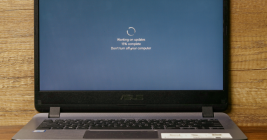Patch Tuesday, October 2021 Edition
Microsoft today issued updates to plug more than 70 security holes in its Windows operating systems and other software, including one vulnerability that is already being exploited in active attacks. This month’s Patch Tuesday also includes security fixes for the newly released Windows 11 operating system.





